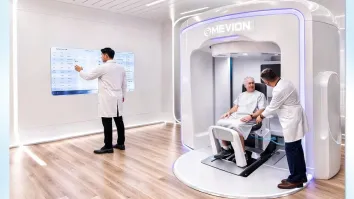
Hong Kong's healthcare system beats Singapore as the world's most efficient: Bloomberg
Absolute healthcare cost in the SAR stands at US$2,222.
Hong Kong has once again beat Singapore, Japan and Norway for the title of the most efficient healthcare system in the world, according to the Bloomberg Health Care Efficiency Index.
The SAR has an efficiency score of 87.3 although Singapore is fast closing in with an efficiency score of 85.6. Life expectancy in the SAR is also the highest at 84.3 years old, attesting to the quality of the SAR's healthcare institutions but at the same time, requiring residents to shell out less with absolute costs at US$2,222.
The Hong Kong government has also made it a point to increase recurrent expenditure on healthcare by an average of 7% over the past decade to address its population growing medical needs, according to an earlier report from BMI Research.
However, insurer Aon has noted that medical inflation in Hong Kong is picking up and expected to clock in at 8.4% by end-2018 as the city's healthcare system bears the growing weight of an ageing population.
"The Hong Kong healthcare market finds itself at an interesting tipping point. The norm over recent years has been the provision of high standards of care through the public system at minimal cost; however, doubts over medical inflation persist," Aon managing director for health & benefits Kitty Chan said in a statement.
Singapore and Spain retained their places in the top three. Italy moved up two places to nab the fourth spot at the expense of South Korea who fell to fifth place. Israel, Japan, Australia, Taiwan and UAE complete the top ten. On the other hand, the US ranks amongst the least efficient healthcare systems as residents fail to get their money’s worth since they pay more but have average life expectancy levels than other countries.
The Bloomberg Health Care Efficiency Index was created to rank those with average lifespans of at least 70 years, GDP per-capita exceeding $5,000 and a minimum population of 5 million. It utilised 2015 data as that’s the latest available information for most economies from the World Health Organisation.
Here’s more from Bloomberg:



















 Advertise
Advertise






